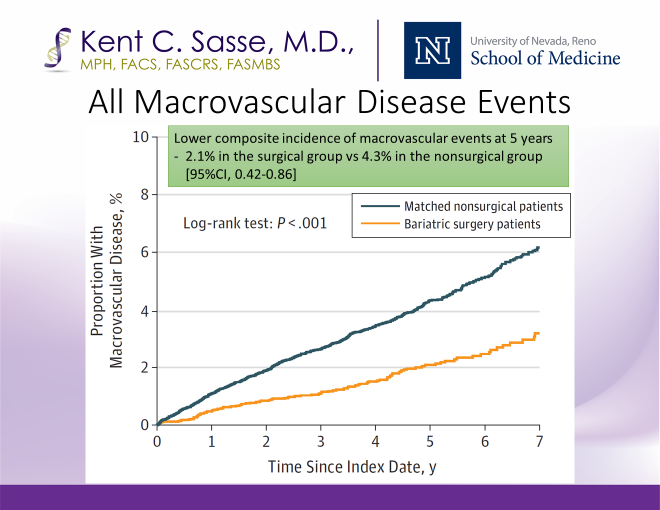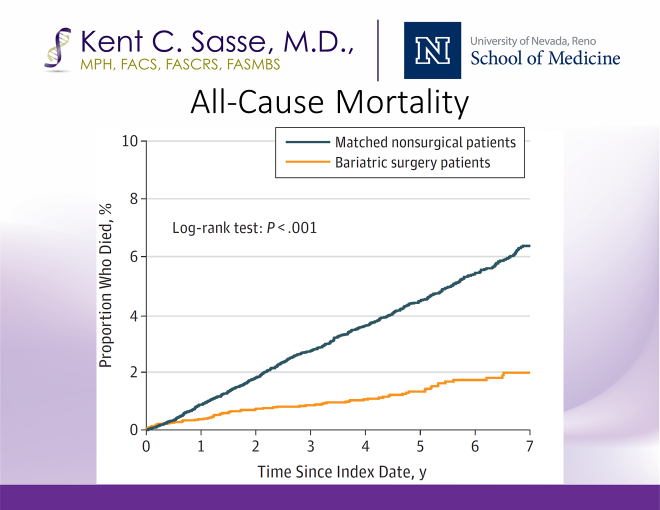Macrovascular disease, including coronary artery disease and cerebrovascular disease, is a leading cause of morbidity and mortality among people with type 2 diabetes. And, as the Kaiser Permanente Health Research Institute researchers state in the introduction to this study, medical management, including lifestyle change, may not actually be successful at reducing the risk.
In the 2018 Fisher matched cohort study published in the Journal the American Medical Association*, investigators studied more than 20,000 diabetic patients over a 7-year period and demonstrated large reductions in overall macrovascular events, the sum of cerebrovascular events and coronary artery events, among patient who undergo metabolic surgery. This study confirms that not only does surgery dramatically improve diabetes as measured by glucose control and HemoglobinA1c, but surgery reduces the primary and most devastating complications of diabetes, stroke and heart attack.

Furthermore, like numerous prior studies, the Fisher study demonstrated a reduction in all-cause mortality among patients who had undergone metabolic surgery vs. those diabetic individuals who had not.
After surgery, most individuals with Type 2 diabetes enjoy a significant period of remission, defined by euglycemia without medications. The American Diabetes Association now recommends metabolic surgery for all patients with Type 2 diabetes and a BMI over 35.

These long-term benefits come without the side effects of a bypass surgical procedure. In over 1,600 consecutive laparoscopic sleeve gastrectomy procedures, Dr. Sasse has had 0.0% mortality, and in the past 1,300 consecutive sleeve procedures over 4.5 years running, there has been 0.0% rate of the major complication of leak.

The most effective therapy for Type 2 diabetes today is a 45-minute surgical procedure.
The study authors write, “Health care professionals should engage patients with severe obesity and type 2 diabetes in a shared decision making conversation about the potential role of bariatric surgery in the prevention of macrovascular events.”
* Fisher, D.P., Johnson, E., Haneuse, S., Arterburn, D., Coleman, K.J., O’Connor, P.J., O’Brien, R., Bogart, A., Theis, M.K., Anau, J. and Schroeder, E.B., 2018. Association between bariatric surgery and macrovascular disease outcomes in patients with type 2 diabetes and severe obesity. JAMA, 320(15), pp.1570-1582.



